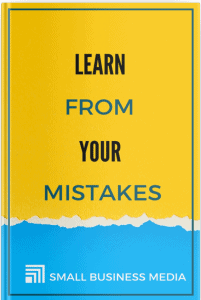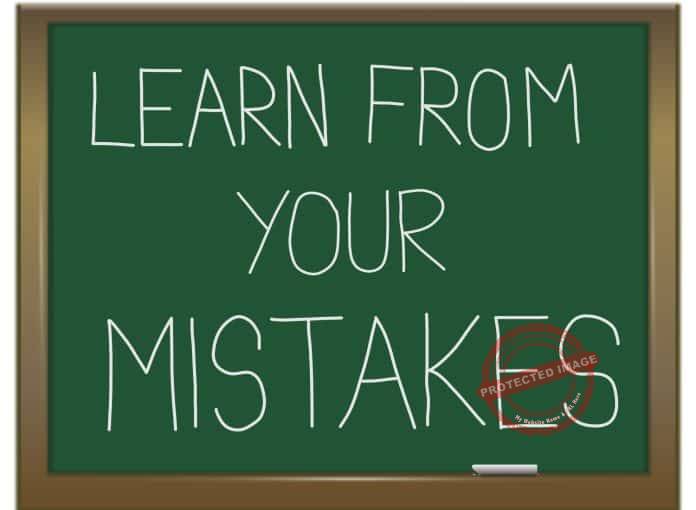Are you looking to learn new tips on how to learn from your mistakes? or are you stuck in a cycle of repeating the same mistakes over and over?
If your answer to the above questions is yes, you will find the information we are about to share beneficial to your learning process.
If you are human, it is reasonable to assume that you have made some mistakes in your life.
So, what did you discover as a result of your mistakes?
If you search for lessons, every blunder may teach you a valuable lesson.
Regardless of their nature, the one thing regarding mistakes is that they are sometimes unavoidable.
Every individual who has walked this earth has committed one blunder or the other.
As Albert Einstein famously said, the best way to prevent making errors is never to try anything.
While we are all prone to mistakes, how we respond to those mistakes is what matters.
Everybody has remorse about a particular situation or has made a poor decision in the past.
Whether they are linked to business, your personal life, or your choices, some mistakes may overwhelm you.
However, not every error has to be disastrous or earth-shattering.
In essence, learning from your errors may lead to significant personal development and a successful career.
You may disregard your mistake, which can make you more likely to make the same error again.
Or you can choose to learn from it, which as a result can reduce your chances of making the same error again.
As we proceed, you will learn essential tips on learning from your mistakes and minimizing their occurrence.
What is a Mistake?
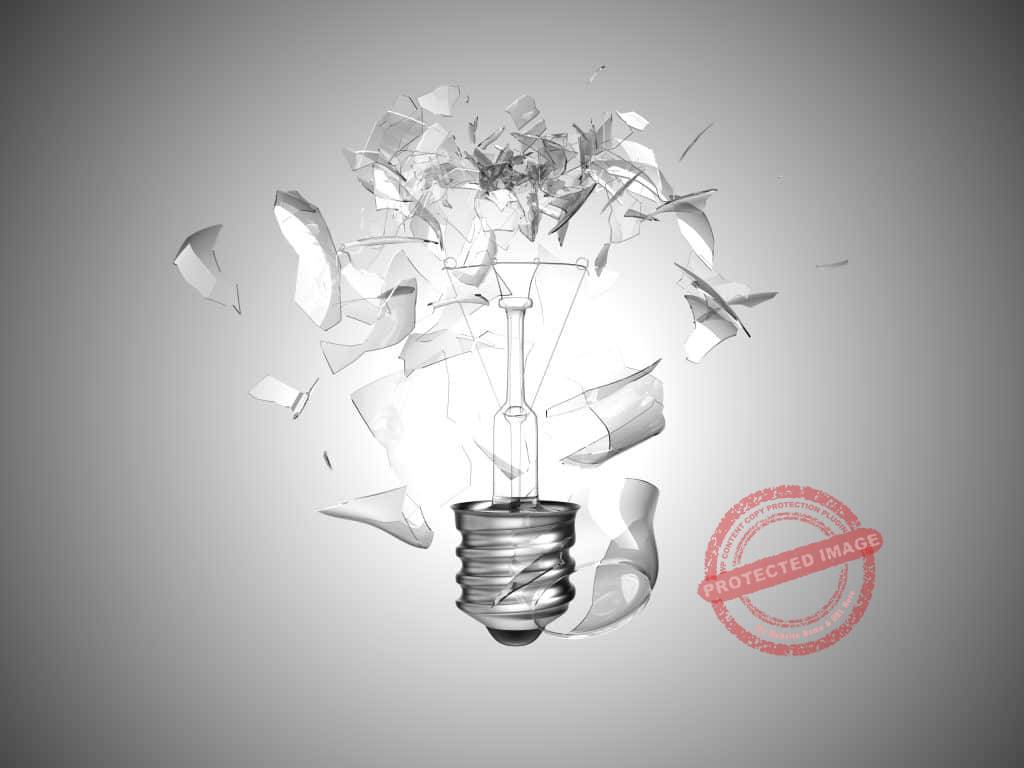
In general, a mistake is a judgment call or conduct that we later come to regret.
A mistake is when you do or say the incorrect thing or when you do not do or say the right thing.
You can commit mistakes by doing something you should not have done or by failing to do something beneficial at the right time.
Mistakes occur in a variety of kinds and sizes.
They might be as a result of a single moment of tiredness or routine of procrastination.
Some may be insignificant and have little or no effects, while others may have devastating consequences.
Whatever the situation, you can learn to confront your mistakes, learn from your errors, and shape your future.
Why Do You Need to Learn from Your Mistakes?
Failure is often regarded as a necessary step on the way to success.
Making mistakes can teach you what to appreciate, enjoy, and avoid.
According to studies, those who learn from their mistakes are more likely to succeed than those who do not.
Making mistakes can be unavoidable, but it can provide an invaluable learning experience.
Everyone is bound to make mistakes at some time, but instead, you can use them as an opportunity to learn and grow better.
Demonstrating that you have learned from your errors can help you gain confidence and overcome your fear of failure.
When you adjust your mindset, you will realize a decrease in your blunders; discover lessons and opportunities for improvement.
Before we detail how to learn from your mistakes, let us talk about the benefits of doing so.
Mistakes Teach You Resilience
Regardless of how you well planned it, life sometimes does not go as you expect.
It can be filled with stumbling blocks and setbacks.
The difference between people who succeed in life and people who do not may be resilience.
While some individuals quit when things become challenging, others that succeed in life continue attempting until they grow.
Learning from your errors and correcting them entails examining the situation to understand what went wrong and provide effective solutions.
It involves exploring viable alternatives and keeping attempting until you discover how to rectify the errors and prevent future occurrences.
As a result, errors teach you to be resilient, an essential life skill.

Provides New Opportunities
Many individuals tend to avoid making mistakes since they often result in unfavorable results.
However, the most efficient means of avoiding mistakes is to do nothing.
As a result, many individuals tend to miss out on discovering new opportunities to prevent mistakes.
They often refrain from attempting new things, and they avoid taking chances.
Overall, this may impact their growth and cut off life-changing opportunities.
When you stop viewing mistakes negatively, and you start viewing them as chances to learn, you will often get better.
You can explore new opportunities, try new things, go after new experiences, and take on greater responsibility.
Offers you Clarity
The term “mistake” often has importance when we compare what we desire to what we consider a success.
Recognizing and admitting your mistakes can help you reconnect with your priorities – what you truly want to accomplish.
Mistakes can assist you in clarifying situations in your life
When you make mistakes, your mind constantly urges you that you need to “fix it.”
The sense of urgency can drive you to focus on difficulties or problems that caused you to go off course.
This can also assist you in understanding what you are doing wrong and how you may develop to help yourself become better.
Working on potential solutions, clarifying what you want or anticipate, or re-examining your beliefs or goals might help you see your way more clearly.
Mistake Teach you What Works and What Doesn’t
When we make an error while working to achieve a specific goal, we can use the error to receive feedback on what works and what does not.
It is often a wake-up call for us to act better.
The feedback we receive as a result of our mistakes might be the most precise, detailed, and effective feedback we may ever receive.
Sometimes, we may trace our errors back to repeating patterns of conviction or attitude.
With this feedback, we can improve our chances of success the next time we try to attain our objectives.
All because we understand where to direct our efforts and what works and what does not.
Tips on How to Learn from Your Mistakes

Consider a recent decision you made.
Did your courage come from earlier trial and error experiences that taught you how to do things correctly when you made this decision?
We are often taught that mistakes are terrible, and if we do not learn from them, it is a waste of time.
However, our mistakes aren’t always earth-shattering; in most cases, they can serve as a reminder of what we could avoid the next time.
Even if you carefully consider your alternatives and believe you have made the best decision, you may not always get your desired results
Nonetheless, there is a possibility of learning from your mistakes.
Below are some tips to help you learn from your mistakes:
Accept Responsibility for Your Mistakes
When errors occur, most individuals immediately look for someone or something to blame.
Either a colleague did not perform their part, the situations were not as planned, or they did not provide sufficient information.
In most situations, though, the errors are our responsibility.
By seeking someone or anything to blame, we are attempting to rid ourselves of the accountability of our mistakes.
Consequently, by refusing to accept responsibility for our mistakes, we can lose our ability to learn from them.
Pushing the responsibility of our mistakes on others can make the error appear beyond our control.
As a result, we do nothing to prevent future re-occurrence.
If you want to learn from your errors, the first thing you need to do is to acknowledge and own the mistake.
Accept responsibility for any negative consequence, whether it was entirely your fault or you just contributed to it.
Owning up to and accepting responsibility for a mistake can be difficult, but it can help you learn to avoid repeating the same error later.
Analyze Your Mistake – Learn from Your Mistakes
After you have recognized and accepted responsibility for your mistake, the next step is to analyze it closely.
Consider what caused the error and how you rectified it, and then make a list of what you did correctly and poorly.
This can help you to pinpoint the exact activity that was erroneous.
Ensure to create time to understand what factors contributed to your mistakes
You may even discover that an error occurred as a result of unanticipated circumstances over which you had no control.
Analyzing and understanding your error may assist you in taking steps to avoid the same mistakes in the future.
This can also assist you in identifying potential solutions to similar mistakes and how to tackle them.
Change Your Attitude toward Mistakes
Many people underestimate the need to transition from an improvement attitude to a growth mindset.
When you encounter a challenge, embrace it as an opportunity to grow and broaden your knowledge.
Examine your mistakes through the lens of the more significant goals you have for your life to accomplish this.
This can assist you in letting go of the setbacks, reaffirming your vision, and keeping moving forward.
Change your attitude toward your mistakes and accept a larger vision that is centered on progress.
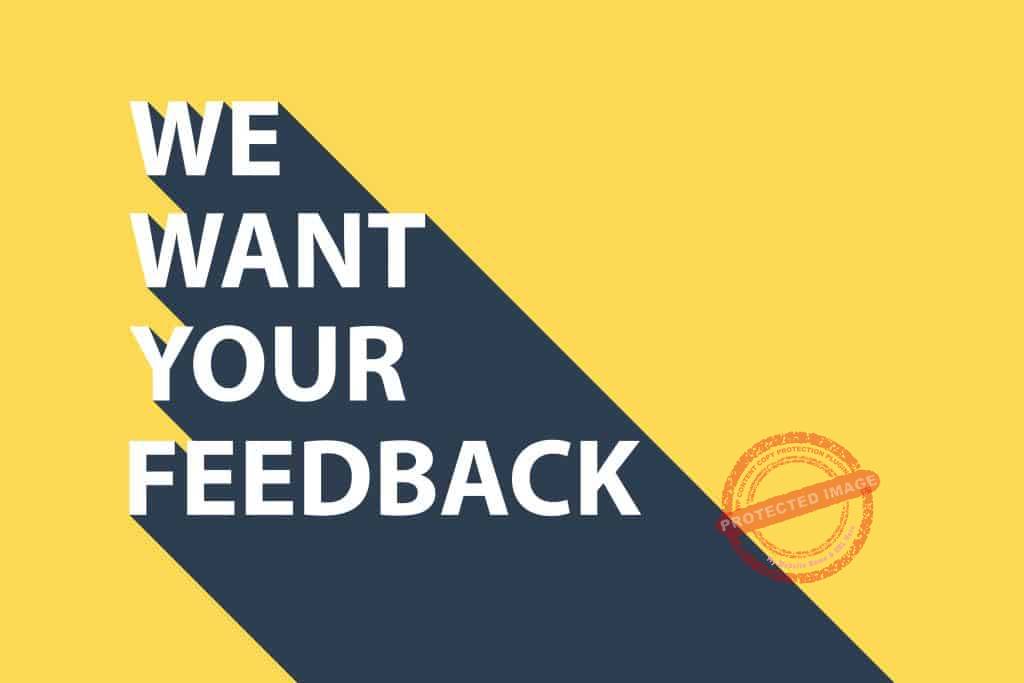
Ask for feedback
Sometimes, despite your best attempts to evaluate your mistakes, you may be unable to establish the cause of the error.
This may be because you lack essential information or expertise to examine the problem adequately.
In such cases, the best method to learn from the error is to seek the assistance of people who possesses the necessary expertise.
Constructive feedback can assist you in identifying aspects of your career you can improve.
As a result, if you have a hard time figuring out a difficult situation, do not be hesitant to seek guidance.
For example, if you don’t know how to fix a mistake, you may call a mentor who has better knowledge to help you out.
This can provide you with helpful information about your career and how to deal with errors and challenging circumstances.
Establish a Plan to Help You Improve
The ultimate purpose of learning from mistakes is to prevent the error from happening again.
Therefore, now that you have discovered what caused the error and examined it, you should create a plan and firm up how to apply these lessons.
If the error was caused by ineffective communication, implement more effective communication methods before carrying out your plans.
Rather than making assumptions, seek clarification from clients or other persons and consider their perspectives on your project.
Sometimes, mistakes occur due to a personal trait that may be difficult to modify in a short time.
Make an effort to improve these personal traits to prevent making the same mistake in the future.
Review Your Progress – Learn from Your Mistakes
The best way to know if your chosen strategy for minimizing mistakes is effective is to track your progress.
Reviewing your progress may help you see mistakes as opportunities for improvement.
Analyze the kind of mistakes and choices you make regularly, as well as the frequency with which you make them.
You may also evaluate how successfully you have applied lessons in your life, particularly how well you have adhered to routines.
Ensure to consider the mistakes you repeat to find areas in which you need to improve.
Consider keeping notes on your progress or speaking with a trusted mentor.
If you discover that you are repeating the same mistakes as you have been doing previously, you may need to revise your strategies for tackling them.
Finally, having a friend who can hold you accountable whenever you make a mistake can be a fantastic method to examine your progress.
Practice What You Have Learned
After you have established your mistake and accepted responsibility for your actions, start acting differently.
You can experiment using different approaches.
Implement ideas from other individuals who have experienced similar situations.
If the challenge appears to be complicated, begin by resolving one issue before moving on to the next.
You may discover that solving one sort of error provides you the insights to identify and address additional issues.
Create time to look at your findings.
Take note of what occurs when you make mistakes and what happens when you take the appropriate steps.
Having success in this area can motivate you to be thorough with your approach to future endeavors.
Practice Self-Compassion
Do not be too harsh on yourself for making a mistake.
Instead, show yourself some empathy.
This will keep you motivated to keep going toward your goal.
Several studies have found that embracing your errors with compassion might help you stay focused on your goals.
Seize this opportunity to let go of your poor decisions, cut yourself some slack, and take time off your worries.
A little self-compassion can help you make the best of a difficult situation and use it to your benefit in the future.
Learn By Teaching Others
Teaching is a very efficient method of learning.
When you choose to assist others to learn from your mistakes, you will confirm what you already know.
When you make a mistake, make it a habit to teach what you have learned to those who could benefit from it.
This can help you avoid making the same mistake again and help you create healthier relationships with your coworkers.
Furthermore, teaching others what you have learned can help instill the lessons in your memory.
Let Go of Your Fear – Learn from Your Mistakes
Have you ever been so afraid of making a mistake that you opted not to even try?
Or has your fear of making mistakes caused you to unknowingly undermine your efforts to avoid making a more significant mistake?
Many of us would have encountered this at some point or other.
Fear of making a mistake may paralyze us, forcing us to do nothing and prevent our growth.
When we let this fear stop us from moving ahead in life, we risk missing out on some fantastic chances.
However, sometimes mistakes indicate that we are trying, and without them, we are not learning or improving.
Learn to conquer your fears, accept your shortcomings, and be willing to make errors to advance in your career and life.
Learn from Others’ Mistakes
Why learn only from your failures when you can learn from the mistakes of others?
Although handling mistakes correctly may transform them into exciting opportunities, it is still preferable to learn to limit the amount you make.
And while doing that, you can learn from other individuals’ mistakes like they are yours.
When you witness someone else make a mistake that is especially relevant to you, spend a few moments examining the situation.
After careful examination, consider how you can avoid making the same mistake in the future.
Learning from others may not be a simple task, as it requires a different strategy than looking inward.
While most people may brag about their success, remember that not everybody is comfortable sharing or acknowledging their mistakes.
Conclusion on How to Learn from Your Mistakes
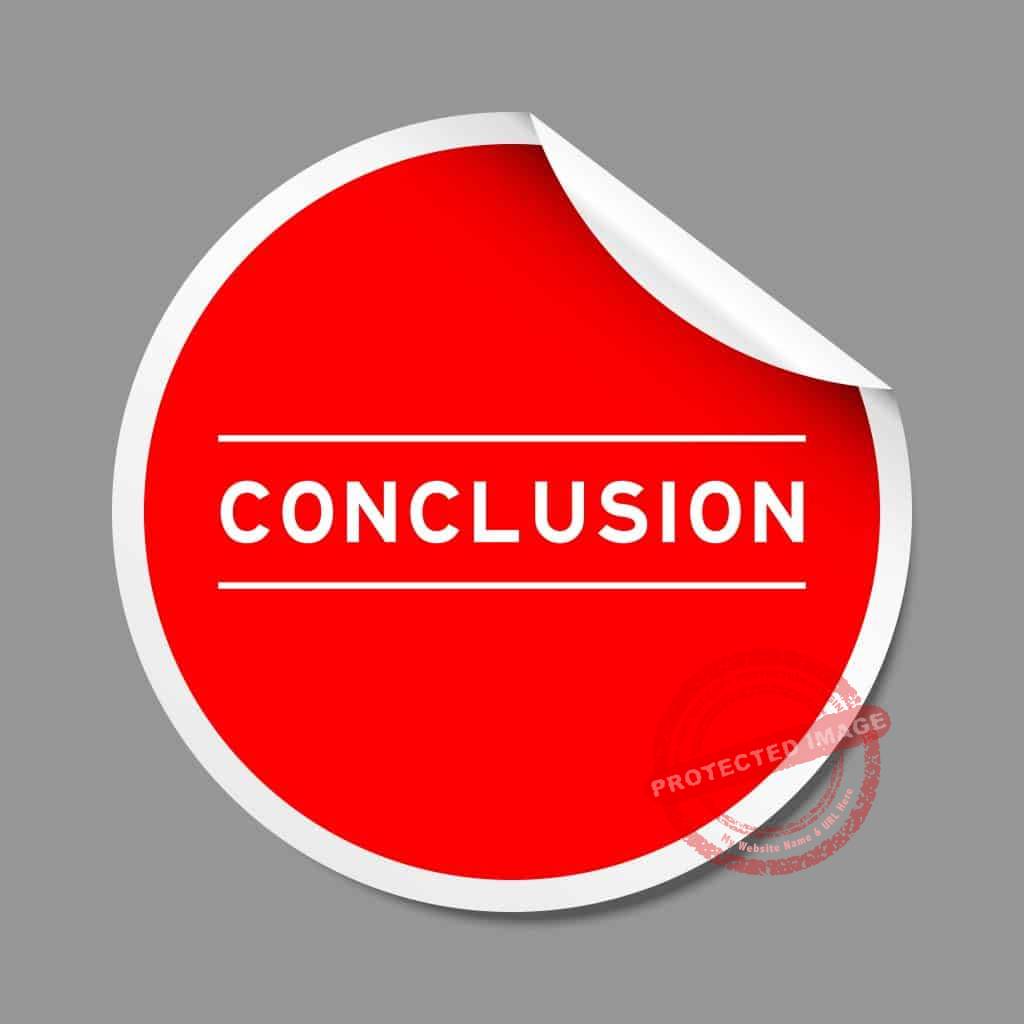
While mistakes are an unavoidable part of life, what counts is not how you make mistakes, but how you respond to them.
Instead of being too hard on yourself, treat mistakes as a chance to learn and improve your person and your career.
Choose to gain from the lessons of your mistakes and persevere on your path to success.
Make a firm decision not to make the same error again.
Maintain a sense of urgency in resolving the problem and assisting others in avoiding your errors.
Find the strength to persevere.
Your missteps in the past might help you focus on doing and saying the correct thing at the appropriate moment.
Click on Buy Now For A PDF Version of This Blog Post
 |
